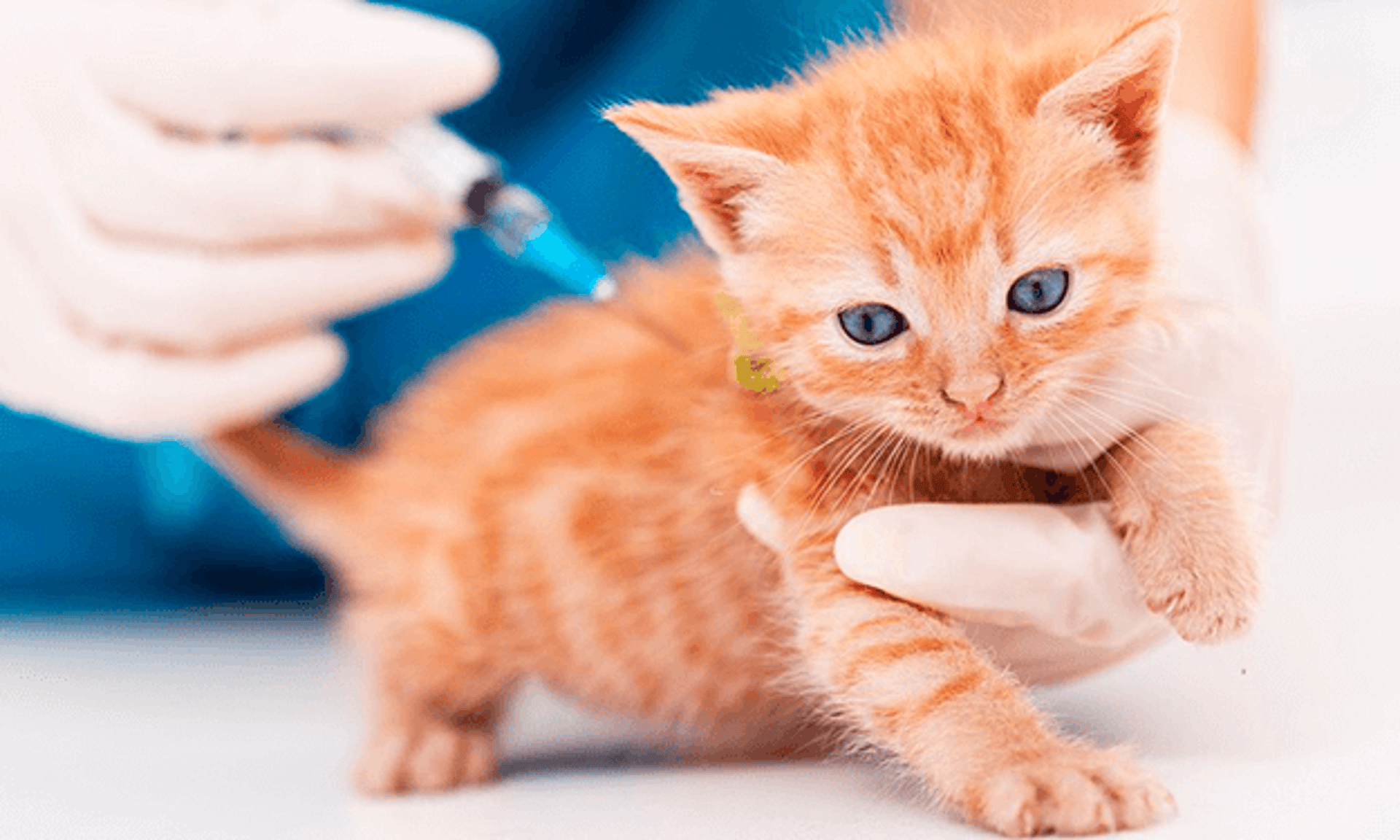
Which Vaccinations Does My Pet Need?
Vaccination is essential for preventing serious illnesses in our pets. Vaccines contain attenuated microorganisms or pathogen components that stimulate the immune system to build defenses.
PETS
5/30/20253 min read
Introduction
Vaccination is essential for preventing serious illnesses in our pets (1). Vaccines contain attenuated microorganisms or pathogen components that stimulate the immune system to build defenses (2). A proper vaccination schedule keeps your pet healthy and protected, preventing outbreaks of potentially fatal infectious diseases. Veterinarians always recommend planning species-specific vaccinations starting from puppy or kittenhood to ensure complete immunity.
Vaccine Types: Core vs. Recommended
Core vaccines: Legally required in many countries/regions. For example, rabies vaccination is mandatory for dogs (and often cats/ferrets) across most of Spain and the EU to maintain rabies-free status (3). Updated rabies vaccination must always be recorded in the European pet passport (4).
Essential/recommended vaccines: Protect against widespread serious diseases. The WSAVA (World Small Animal Veterinary Association) defines core vaccines as those all dogs/cats should receive:
Dogs: Initial essential vaccination includes distemper, parvovirus, adenovirus (hepatitis), and other components of the infectious tracheobronchitis complex (5,6)
Cats: Core vaccines cover feline panleukopenia (feline distemper), calicivirus and herpesvirus (feline viral rhinotracheitis) (7). These are typically combined in "triple" or "quadruple" vaccines.
Non-core (optional) vaccines: Administered based on individual risk factors (environment, lifestyle, geography). For example, leptospirosis or bordetella (kennel cough) vaccines aren't essential for all dogs - just those in flood-prone areas or attending kennels (8). WSAVA recommends only using non-core vaccines when justified (8).
Species-Specific Vaccination Schedules
Dogs
Core vaccines: Canine distemper, parvovirus, and adenovirus (hepatitis) (5). Puppies receive these in multiple initial doses.
Rabies vaccine: Typically mandatory from 3-5 months in Spain/EU, with annual/biennial boosters depending on region (3). Required for international travel (4).
Recommended non-core vaccines: Leptospirosis (for water-exposed dogs), bordetella (kennel cough), and parainfluenza (8).
Standard schedule: Begins at 6-8 weeks, with boosters every 2-4 weeks until 16-20 weeks (6). Annual booster at 1 year, then every 1-3 years depending on vaccine (8,9). Veterinarians stress never delaying doses to ensure full protection.
Cats
Core vaccines (FVRCP): Feline panleukopenia (FPV), feline herpesvirus (rhinotracheitis), and calicivirus (7).
Rabies vaccine: Regionally recommended/required. While not always mandatory for cats in some areas, it's required for international travel (7).
Feline leukemia (FeLV) vaccine: Non-core but recommended for outdoor cats/kittens (10). WSAVA considers FeLV optional in low-prevalence areas (10).
Standard schedule: Starts at 6-8 weeks, with boosters every 3-4 weeks until 16-20 weeks (6). Annual booster at 1 year, then every 1-3 years for core vaccines (9).
Ferrets
Core vaccines: Canine distemper and rabies (11). Distemper is nearly always fatal in ferrets, and rabies is a lethal zoonosis. Rabies vaccination is legally required for ferrets in most Spanish regions (12).
Schedule: Can begin at 6 weeks - two initial doses 2 weeks apart, then annual boosters (13). Pre-vaccination antihistamines may prevent reactions (14).
Rabbits
Core vaccines: Myxomatosis and Rabbit Hemorrhagic Disease (RHD) - both highly lethal (15). The combined Myxo-RHD vaccine is mandatory for pet rabbits in much of Europe.
Standard schedule: First dose at 8 weeks (2-3 months), then annual boosters (16). Modern vaccines also protect against RHDV2 variant.
Birds and Small Mammals
Domestic birds (parrots, canaries, chickens etc.): No routine mandatory vaccines. Vaccination (e.g., against Newcastle disease) only occurs during outbreaks (17).
Other small mammals (hamsters, guinea pigs etc.): No standard vaccines. Prevention focuses on hygiene, nutrition and veterinary check-ups.
Booster Frequency
After initial puppy/kitten series, an annual booster is given. Core vaccines (distemper, parvovirus, hepatitis, panleukopenia) are boosted every 3 years in adults (8,9). Non-core vaccines (leptospirosis, kennel cough) typically require annual boosters. Rabies boosters may be annual or biennial depending on local laws.
General Recommendations
✔ Veterinary consultation: Only a vet should determine appropriate vaccination plans (1,19). Never vaccinate sick animals - vaccines require a healthy, parasite-free patient (20).
✔ Maintain schedules: Delayed doses compromise protection. Keep vaccination records current.
✔ Risk assessment: Rural pets or outdoor animals may need additional vaccines.
✔ Exotic species: Follow specialized exotic veterinarian recommendations.
Conclusion
Vaccination protects both pets and families (against zoonotic diseases like rabies). It should be fundamental to veterinary care: experts emphasize core vaccines for all pets, using non-core vaccines only when justified (8). Properly maintained vaccination schedules can save lives and prevent serious outbreaks.
Sources: WSAVA guidelines (5,7), veterinary associations and exotic pet experts (11,15,17). All emphasize vaccination as crucial preventive medicine.
(1, 15, 16) Vacunas esenciales para conejos: mixomatosis y enfermedad vírica hemorrágica | Clínica Veterinaria Zarpa
https://www.clinicaveterinariazarpa.com/noticias/conejos-vacunas-obligatorias-veterinario-cuenca/
(2, 3, 18, 19, 20) Perros, gatos, conejos y hurones...¡A vacunar!
https://www.abc.es/sociedad/20150507/abci-mascota-guia-vacunacion-201505052156.html
(4)Viajar con la mascota. Perros, gatos, hurones
https://www.mapa.gob.es/es/ganaderia/temas/comercio-exterior-ganadero/desplazamiento-animales-compania/Viajar- perros-gatos-hurones.aspx
(5, 6, 7, 8, 9, 10) 707 B - WSAVA Vaccination Guidelines Full Version
https://wsava.org/wp-content/uploads/2020/01/WSAVA-vaccination-guidelines-2015-Spanish.pdf
(11)Calendario de vacunas de un hurón | Consejos
https://www.kivet.com/blog/calendario-vacunas-hurones/
(12, 13, 14, 21) ¿Qué vacunas debo ponerle a mi hurón? El moquillo y la rabia, las imprescindibles https://www.20minutos.es/noticia/5077886/0/que-vacunas-debo-ponerle-a-mi-huron-el-moquillo-y-la-rabia-las- imprescindibles/
(17)Vacunación de aves de traspatio - Animales exóticos y de laboratorio - Manual de veterinaria de Merck
https://www.merckvetmanual.com/es-us/animales-ex%C3%B3ticos-y-de-laboratorio/aves-de-traspatio/vacunaci%C3%B3n-de-aves-de-traspatio
AgroPetEd
Information about animals and agricultural practices
© 2025. All rights reserved.
